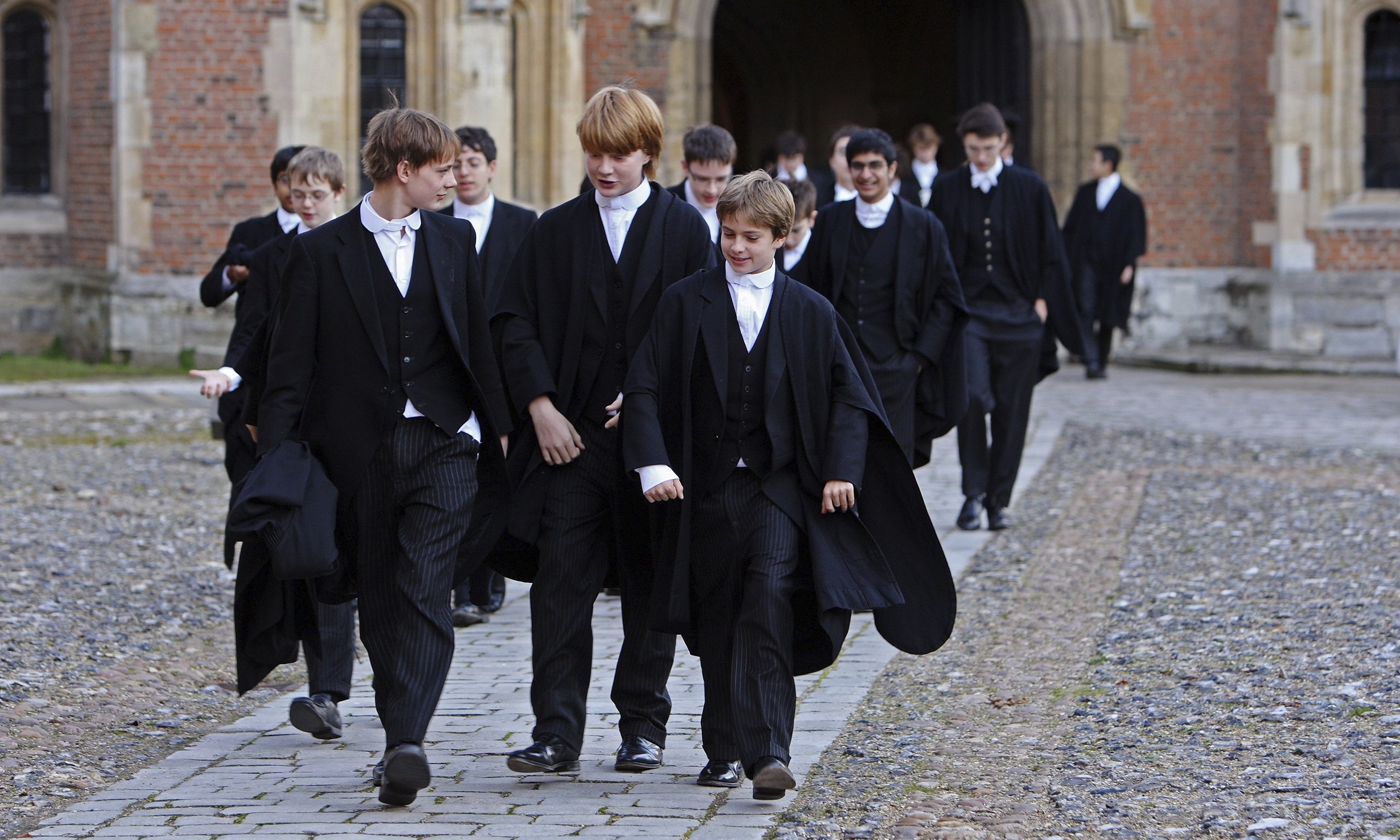Gove’s attack on Etonians: a sign that senior Tories are giving up on the next election
written for The Telegraph, 15 March 2014

What has Gove got against Dave’s old school? (Photo credit: Getty)
Michael Gove’s interview with today’s FT contains an extraordinary attack on Etonian domination of the top of the Tory Party. Sure, he “doesn’t blame any of the individuals concerned”, and sure, it’s part of a broader crusade against social immobility in Britain. But Gove is a smart man, and as a former journalist he knows how to grab a headline. And he knows that in the Commons, hostility to the posh boys has grown since Cameron, a man with private wealth, branded a pay rise for MPs “unacceptable”.
It’s got pretty overt: last month MP Mark Pritchard tweeted: “Inside and outside of Parliament people are fed up of Old Etonians thinking they can pass on No10 like some sort of play thing or baton”. The target, obviously, was Boris Johnson, who famously described a leadership race as “the ball coming loose from the back of a scrum”. And shortly before Christmas, a Tory MP gave me a conspiratorial glance at a much-circulated copy of the 1980s classic, The Sloane Ranger Handbook. Cameron and Boris’s photographs had been glued into classic scenes of Eighties privilege in Chelsea. That David Cameron’s own life has been anything but charmed, with his tragically short-lived son, and his disabled late father, seems long forgotten.
So Michael Gove’s intervention is already being interpreted as an attempt to harness that resentment to his own leadership ambitions. The truth is more complicated: as confirmed by this week’s YouGov poll, Gove knows he’s a hate figure for the electorate at large, the necessary cost of going into battle with the teaching unions. Thanks to his popularity within the party, he will play a decisive role in the next leadership battle, but as I’ve written before, for all his ambition Gove deeply admires Keith Joseph, who constructed the intellectual architecture of the party under Margaret Thatcher but had to content himself with being her number two.
Since Gove delivered the CPS Keith Joseph lecture last year, his relationship with Boris has sharply deteriorated. As James Forsyth writes in The Spectator, he has become the front man for the Stop Boris campaign: “Michael is licensed to sink his teeth into Boris’s ankles in a way that neither the boss nor George can”. Gove wants to be kingmaker in the next election: distancing himself from the unpopular Cameron may boost his parliamentary clout, but this, like the grumblings of Mark Pritchard, is really an attack on Boris. Unfortunately for Gove, he’s not keen on Theresa May either – famously accusing her in a cabinet meeting last year of jostling to obviously to replace their boss. If the Cameron loyalists think George Osborne can win in the country, they’ll have an uphill struggle.
Beneath all this arcane Kremlinology, Gove’s headline-grabbing interview is a symptom of a much bigger story. When ministers expend precious energy on the next leadership race, it’s a sign they fully expect a vacancy. Last Sunday, Matthew d’Ancona wrote that “a wise Cabinet veteran of the Major years told me during the week that he felt his own party was going back to its constituencies and preparing for Opposition.” And over the last fortnight, I’ve been amazed by the number of Tory MPs who’ve quietly muttered to me: “of course, we’ll be in opposition next time”. Predictably, the ones who seem all too comfortable with this prospect are those with safe seats – those in marginals still speak brightly of their plans for the next Parliament.
While Gove’s latest power play may not be an attack on Cameron, it’s a clear sign of a party in crisis. The cabinet is already dividing the spoils of a 2015 defeat. The Tory Party is giving up on the next election.




